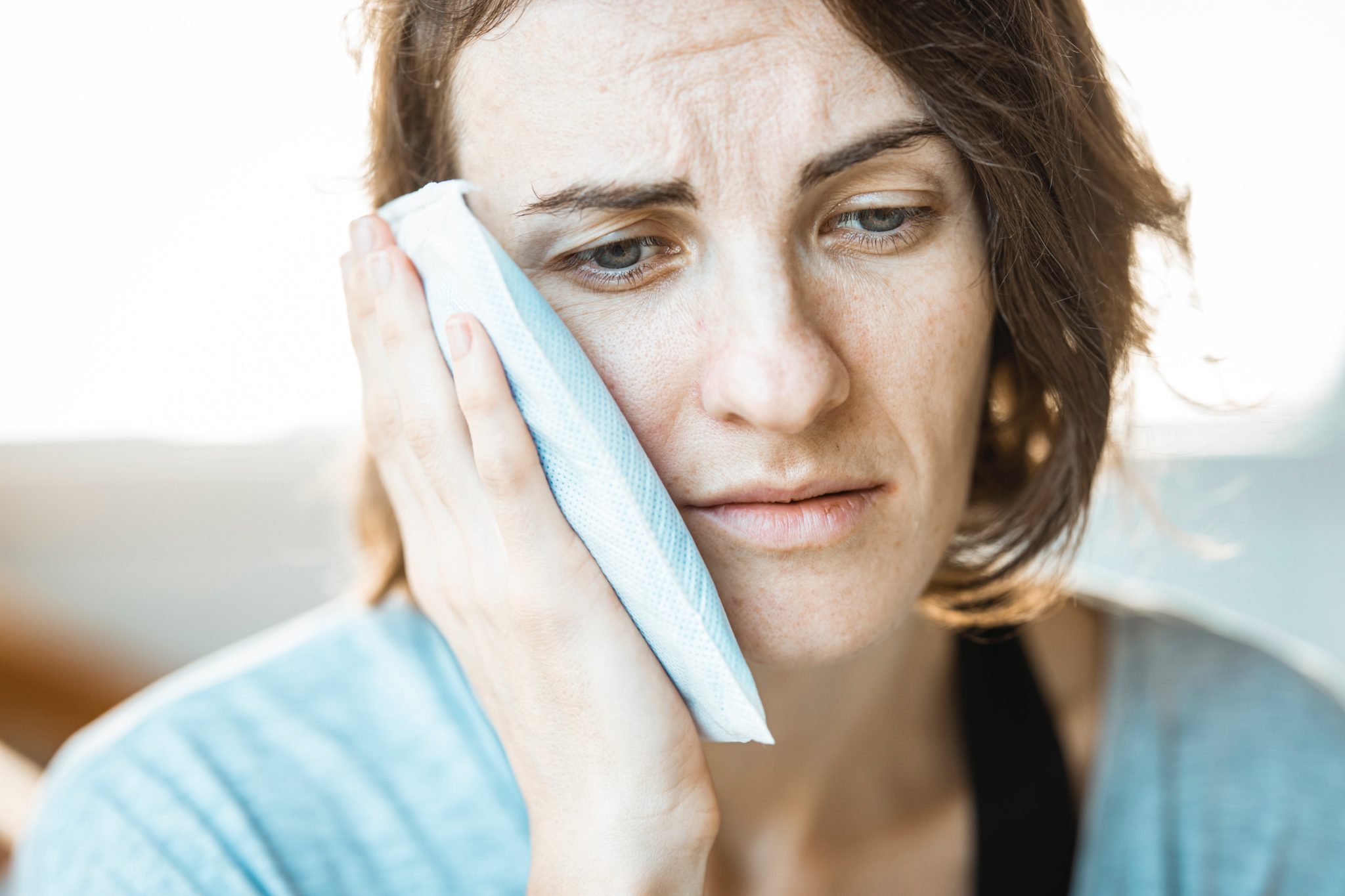- Lab Services
Featured Products
- Dental Up
- About
- Contact
Menu
Featured Products

Do you have a patient that constantly grinds their teeth, clenches their jaw, or experiences chronic headaches? Then she or he may be experiencing bruxism — a condition involving abnormal teeth grinding and clenching that can lead to various physical and psychological issues.
In this blog post, we will be looking at bruxism, including its symptoms, causes, and how it is treated. By understanding more about this condition, you can take steps to manage it and reduce its effects on your overall health and well-being.
Bruxism, also called teeth grinding or clenching (and even called bruxing), is a common condition when a person unconsciously grinds or clenches their teeth, especially while asleep. The condition is most commonly caused by stress, anxiety, and tension but can also be a sign of a medical condition such as gastroesophageal reflux disease (GERD).
In some cases, bruxism may also have a physical cause. Some people with TMJ (temporomandibular joint) misalignment, craniofacial disorders, or tooth pain may be more prone to grinding their teeth, as the grinding can relieve the affected area.
Symptoms of bruxism can include a sore or tender jaw or temples, headaches or facial pain, or worn down teeth or tooth enamel. Bruxers may also hear a grinding noise during their sleep.
Treatment of bruxism usually involves stress management and the elimination of specific triggers. Dentists may also provide a mouth guard or splint to be worn at night to keep the teeth from grinding or clenching. In some cases, medication may also be recommended to reduce clenching and grinding.
Read more: Protect Bruxing Patients With Custom Mouth Guards And Night Guards
Bruxism can be divided into two main types: awake bruxism and sleep bruxism. Awake bruxism is characterized by grinding and clenching of the teeth during waking hours, often due to stress, anxiety, or tension.
Most common sleep bruxism occurs during sleep due to poor jaw alignment, malfunctioning neurons, or an underlying medical condition.
Individuals who suffer from sleep bruxism may grind or clench their teeth, cause physical damage to the jaw, neck, and teeth, and lead to other complications such as headaches, facial and neck pain, and difficulty sleeping.
According to this paper, “SB has been associated with tooth interference, psychosocial and environmental factors, brain transmitters, and basal ganglia dysfunction.”
In some cases, bruxism can occur while an individual is aware and awake, either as a response to certain emotions; this is referred to as ‘’awake bruxism’’. This can occur in response to frustration, anger, or even concentration.
The common symptoms of bruxism are facial pain, increased tooth sensitivity, grinding or clenching sound during sleep, scalloped tongue, headaches, and pain when chewing.
Without treatment, bruxism can have long-term effects, such as worn down teeth and temporomandibular joint (TMJ) disorders. People who suffer from bruxism might experience difficulty in opening their mouth, facial pain and discomfort, clicking of the jaw, and headaches.
They may also feel pain in their neck, shoulders, and even their ears. If left untreated, bruxism can cause significant damage to teeth, such as an increased risk of tooth decay and tooth fractures. In severe cases, bruxism can cause severe headaches, earaches, and even locking of the jaw.
It is essential to treat bruxism as soon as possible to reduce the likelihood of long-term effects that can damage teeth and cause considerable pain for the sufferer.
You may also like: A Dental Case Study: Management Of Dentin Hypersensitivity By National Dental PBRN
When it comes to the causes of bruxism, both psychological and physical factors can play a role. On the psychological side, anxiety, stress, and anger are some of the significant psychological contributors to this condition.
On the physical side, obesity or neck and jaw pain have also been associated with bruxism. Additionally, some medications, such as antidepressants, antipsychotics, and drugs for ADHD, can lead to the development of the condition.
Lastly, sleep apnea, the use of certain drugs, and even alcohol consumption can contribute to teeth grinding and clenching.
It is essential to keep in mind that different factors can contribute to the occurrence of bruxism, so it’s important to talk to your physician or dentist if you suspect you have this condition.
People suspected of having bruxism will contact you or your clinic for a proper diagnosis. During the consultation, you will ask questions about the patient’s health history and symptoms and then do a physical examination.
To get a more specific and accurate diagnosis, you may do additional tests, such as X-ray images of the patient’s mouth or teeth. If a person is diagnosed with bruxism, they may be advised to do additional tests to pinpoint the underlying cause of the condition.
It is also important to note that bruxism can be easily mistaken for other conditions, such as TMJ disorder. Hence, it is vital to get a proper diagnosis for accurate treatment.
Additionally, suppose the bruxism is due to a physical health condition. In that case, it is vital to get the underlying condition treated correctly to prevent the recurrence of the teeth grinding or clenching.
Questing the patient is the easiest way of assessing whether they have the condition. Common questions to ask are:
When it comes to treating bruxism, it is essential to first and foremost identify the underlying cause of the condition. You should recommend the best treatment plan depending on what is causing the bruxism.
One of the first treatment methods for bruxism is typically lifestyle changes, such as reducing stress levels, quitting certain medications, getting enough sleep, and avoiding alcohol and recreational drugs.
If the bruxism is severe, you may also recommend the use of a mouthguard or splint to be worn at night. This device can help protect your teeth from the damaging effects of teeth clenching and grinding.
In some cases, muscle relaxants or antidepressants may be recommended if the bruxism is caused by anxiety or stress. Additionally, physical therapy, biofeedback, and behavior modification techniques may be recommended to help address the underlying cause of bruxism.
See all of Keating’s Removable Denture services.
To sum up, bruxism is a common condition that is caused by a variety of psychological and physical factors. If a patient suspects having this condition, they must contact their dentist or doctor to get a proper diagnosis and determine the underlying cause.
Once the underlying cause is identified, there are various treatment options available to help manage the condition. Talk to your patient to determine the best treatment plan for them.

Join our mailing list and receive:

Copyright © 2024 Keating Dental Lab. All Rights Reserved.
Thank You!
Your information has been received.
CHECK YOUR EMAIL FOR DETAILS ON HOW TO RECEIVE YOUR DISCOUNT.
Click here to learn more about Keating Dental Lab.

Thank You!
Your information has been received.
If you have a question, or would like to talk to us about a case, give us a call:
877-872-3510
Click here to learn more about Keating Dental Lab.

Thank You!
Your information has been received.
If you have a question, or would like to talk to us about a case, give us a call: 877-872-3510
Click here to learn more about Keating Dental Lab.

{field:firstname}
Experience the ‘Keating Difference’
For Licensed Dentists Only.
All fields must be completed